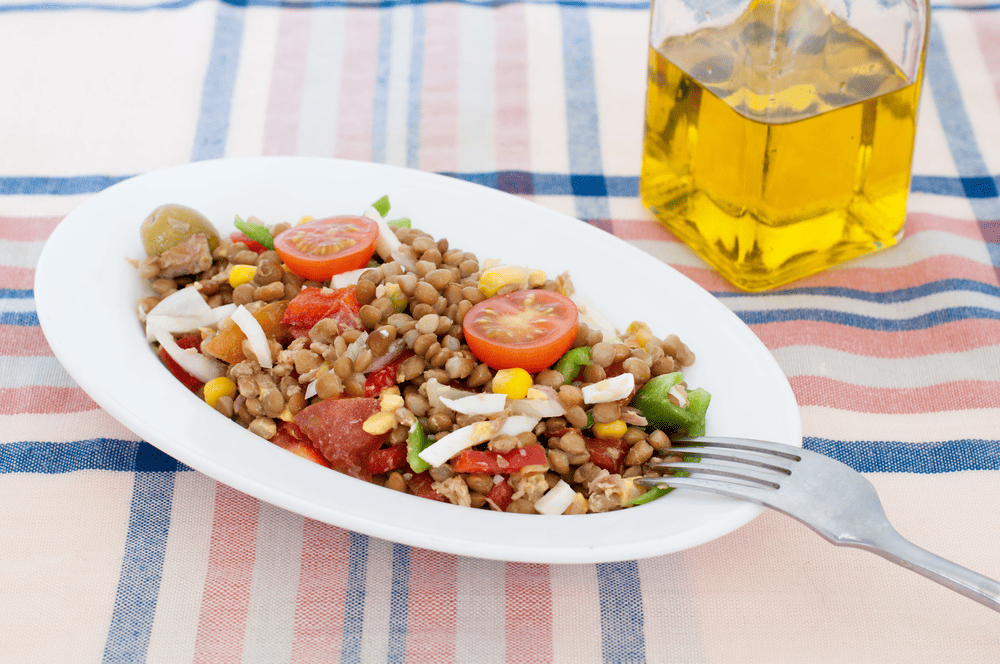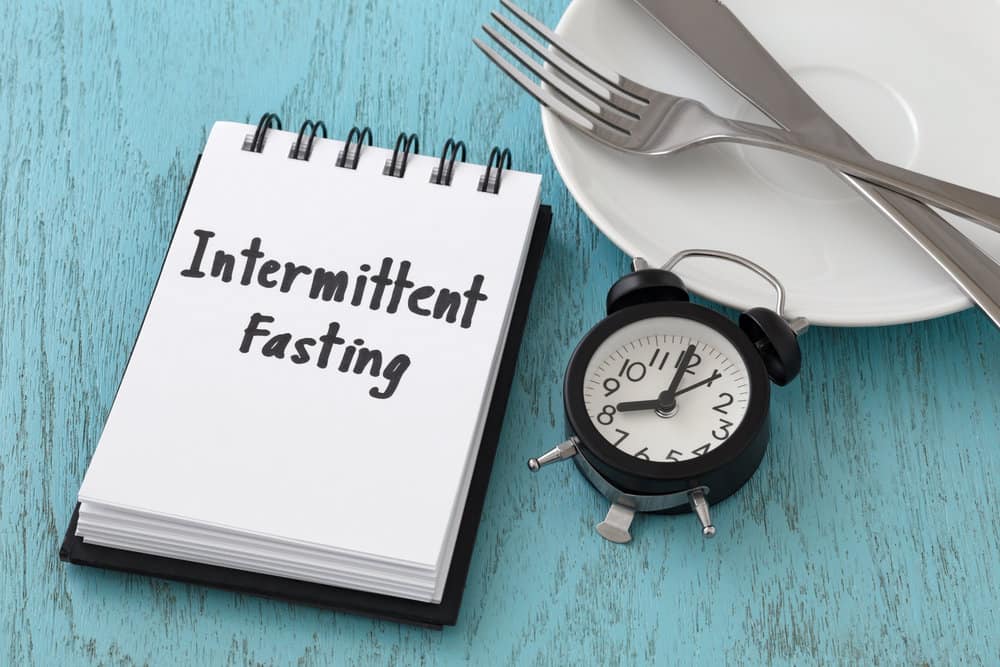Are you looking for a new approach to improve your health and shed some extra weight? The benefits of 20/4 intermittent fasting, also known as the Warrior Diet, might just be the answer you’re seeking.
This fasting method has gained popularity in recent years, offering a unique way to optimize your health and potentially lose weight without the need for strict calorie counting or specific food restrictions.
Let’s explore the world of 20/4 intermittent fasting and discover how it can unlock a range of health benefits for you.
In this blog post, we’ll dive deep into the principles of 20/4 intermittent fasting, its key benefits, and practical tips to help you succeed.
We’ll also discuss potential risks, side effects, and who should avoid this fasting method. So, let’s embark on this exciting journey to a healthier lifestyle with the benefits of 20 4 intermittent fasting!
Key Takeaways
-
Unlock the potential of improved health, cognitive function and reduced inflammation with 20/4 Intermittent Fasting!
-
Stay hydrated, eat nutrient-rich foods & ease into fasting to optimize success.
-
Consult a professional when considering this method for women’s hormonal health & athletes’ high caloric needs.
Understanding 20/4 Intermittent Fasting

20/4 intermittent fasting, or the Warrior Diet, is based on a simple principle: fast for 20 hours a day and eat during a 4-hour window.
The Warrior Diet, rooted in the eating patterns of ancient warriors, aims to promote weight loss, enhance cognitive function, and improve metabolic health. Alternating between fasting and feeding periods triggers a metabolic switch, allowing your body to burn fat more effectively.
But what does this eating pattern entail? We will analyze its components and explore its background.
The Warrior Diet background
The Warrior Diet, popularized by health and fitness author Ori Hofmekler in the early 2000s, is based on the eating patterns of ancient warriors.
These warriors would fast during the day and feast at night, allowing them to maintain their strength and agility.
The Warrior Diet aims to replicate this eating pattern, with a 20-hour fasting period followed by a 4-hour eating window.
The diet promises successful weight loss by encouraging the body to burn stored fat for energy during the fasting window and control calorie intake during the eating window.
A three-week introduction with a three-phase plan is recommended by the Warrior Diet to assist your body in adapting to this new eating pattern.
This plan aims to ease your body into the fasting and feeding schedule, allowing it to become accustomed to using body fat as energy and maximizing your chances of reaching your fitness goals.
Fasting and Feeding Windows
The success of the 20/4 intermittent fasting plan greatly depends on the fasting and feeding windows. During the 20-hour fasting period, it’s essential to consume minimal calories and focus on staying hydrated.
The four-hour eating window, on the other hand, is your opportunity to nourish your body with nutrient-dense foods that fuel your body and provide essential vitamins and minerals.
To make the most of your eating window, follow these guidelines:
-
Plan your meals ahead
-
Incorporate a variety of nutrient-rich foods such as lean proteins, whole grains, and plenty of vegetables
-
Avoid binge eating and focus on balanced portions
-
Maintain a healthy relationship with food during the fasting journey
Sticking to these guidelines will ensure that you reap the full benefits of 20/4 intermittent fasting while avoiding potential risks and side effects.
Key Benefits of 20/4 Intermittent Fasting

The 20/4 intermittent fasting method offers a range of health benefits, including:
-
Weight loss
-
Improved insulin sensitivity
-
Enhanced cognitive function
-
Reduced inflammation
By adopting this fasting protocol, you can potentially unlock a healthier and more vibrant version of yourself, and even lose weight.
We will delve into these benefits and examine how they can enhance your overall well-being.
Weight Loss
One of the main reasons individuals turn to 20/4 intermittent fasting is the potential for weight loss.
By restricting your calorie intake to a shorter eating window, you naturally consume fewer calories and encourage your body to burn stored fat for energy during the fasting period.
Factors such as your initial body weight, regular exercise, and stress levels can influence your weight loss journey while fasting.
However, one should bear in mind that no fasting method, including 20/4 intermittent fasting, serves as a magic bullet for fat loss.
Successful weight loss requires a combination of consistent exercise, a balanced diet, and maintaining a caloric deficit.
While 20/4 fasting can help support your weight loss goals, it’s important to consider how much weight you can realistically expect to lose. Remember, it should be combined with healthy lifestyle habits for sustainable results.
Improved Insulin Sensitivity
Improved insulin sensitivity is another significant benefit of 20/4 intermittent fasting. Insulin sensitivity refers to the body’s ability to effectively respond to insulin and use glucose from the bloodstream for energy.
By reducing the duration of insulin activity in the body, 20/4 fasting can enhance insulin sensitivity and help prevent type 2 diabetes and other metabolic issues.
This improvement in insulin sensitivity can have a profound impact on your overall health, safeguarding against chronic diseases and allowing you to lead a healthier lifestyle.
By incorporating 20/4 fasting into your routine, you take a proactive approach to protect your body from insulin resistance and its potential complications.
Improved Brain Function
Improved brain function is another exciting potential benefit of 20/4 fasting.
Research suggests that intermittent fasting may increase brain-derived neurotrophic factor (BDNF) levels, a protein that supports brain health and function.
Increased BDNF levels could lead to enhanced cognitive function, including improved memory, learning, and focus.
While there isn’t solid evidence of a short-term positive impact of intermittent fasting on cognition in healthy individuals, the potential benefits on brain health and function are promising.
By engaging in 20/4 fasting, you may support your brain’s health and optimize its performance, contributing to a sharper and more focused mind.
Reduced Inflammation
Reducing inflammation is another key benefit of 20/4 intermittent fasting.
Chronic inflammation has been linked to various chronic diseases, including heart disease, diabetes, and cancer.
Studies have shown that 20/4 fasting decreases the production of pro-inflammatory cytokines and increases the production of anti-inflammatory cytokines, helping to reduce inflammation in the body.
By incorporating 20/4 intermittent fasting into your lifestyle, you can potentially:
-
Lower your risk of chronic diseases
-
Improve your overall health
-
Experience a reduction in inflammation, leading to better functioning of your body’s systems
-
Achieve a greater sense of well-being
Tips for Success with 20/4 Intermittent Fasting

To get the most out of 20/4 intermittent fasting and limit potential risks, it’s necessary to implement some strategies for success.
We will share strategies for maintaining hydration, eating nutrient-rich foods during your eating window, and easing into the fasting routine.
These tips will help you make the most of your fasting journey and achieve the best possible results.
Hydration

Maintaining hydration during 20/4 intermittent fasting is vital for bodily functions and overall health. Water is essential for various bodily functions, including:
-
digestion
-
absorption
-
circulation
-
temperature regulation
Proper hydration can also help reduce hunger and cravings, making it easier to stick to your fasting plan.
To ensure you stay hydrated during your fasting journey, aim to drink at least 8-10 glasses of water per day.
You can also consume other calorie-free beverages, such as black coffee and herbal tea, to support your hydration needs.
Remember that staying hydrated is key to achieving the best results with 20/4 fasting, so make it a priority in your daily routine.
Nutrient-Rich Foods
Eating nutrient-rich foods during the feeding window is crucial for sufficient nutrient intake and overall health support. A well-balanced diet during the eating window should include:
-
Lean proteins
-
Healthy fats
-
Complex carbohydrates
-
Plenty of fruits and vegetables
These nutrient-dense foods will provide your body with the essential vitamins, minerals, and macronutrients needed for optimal function.
When planning your meals during the eating window, focus on incorporating foods from different food groups and avoid processed foods.
Look for whole, unprocessed ingredients and prioritize nutrient-dense options, such as:
-
Dark leafy greens
-
Whole grains
-
Lean proteins
-
Healthy fats
By choosing nutrient-rich foods, you can fuel your body effectively and maximize the health benefits of 20/4 intermittent fasting.
Gradual Transition
Jumping straight into a 20/4 fasting routine can be challenging and may lead to potential side effects, such as headaches, fatigue, and irritability.
Instead, it’s advisable to gradually transition into the fasting routine, giving your body time to adapt to the new eating pattern.
Start by incorporating shorter fasting periods, such as 8-10 hours, and gradually increase the fasting window as your body becomes accustomed to the new routine.
This gradual approach can help you avoid potential side effects and ensure a smoother transition into the 20/4 fasting method.
Remember, patience and consistency are key to achieving long-term success with intermittent fasting.
Potential Risks and Side Effects

Despite the numerous health benefits of 20/4 intermittent fasting, awareness of its potential risks and side effects is crucial. We will discuss nutrient deficiencies and potential disordered eating patterns that could emerge as a result of 20/4 fasting. Being informed about these risks will help you make the best decisions for your health and well-being.
Nutrient Deficiencies
Nutrient deficiencies are a potential risk of 20/4 intermittent fasting due to the shortened eating window, which can make it difficult to obtain all essential nutrients within the limited time frame.
If your body doesn’t receive the necessary vitamins, minerals, and other nutrients, it can lead to potential health issues and complications.
To minimize the risk of nutrient deficiencies, carefully plan your meals during the eating window to ensure a balanced and nutrient-rich diet. You may also consider taking a daily multivitamin and mineral supplement to further support your nutritional needs while fasting.
By paying close attention to your nutrient intake, you can maintain a healthy and balanced diet during the 20/4 fasting journey.
Disordered Eating Patterns
Another potential risk associated with 20/4 intermittent fasting is the development of disordered eating patterns and attitudes.
The strict fasting and eating windows can lead to an unhealthy relationship with food, causing feelings of guilt or shame when eating outside of the fasting window or consuming certain foods.
If you have a history of disordered eating or are at risk for developing eating disorders, it’s crucial to seek professional guidance before attempting 20/4 intermittent fasting.
A healthcare professional can help ensure you’re engaging in fasting in a safe and healthy way, providing support and guidance as needed.
Who Should Avoid 20/4 Intermittent Fasting?
Although 20/4 intermittent fasting can provide numerous benefits, it isn’t for everyone.
Certain individuals, such as women with hormonal health concerns and athletes with high caloric needs, should consider avoiding this fasting method. We will examine the reasons why these groups might need to avoid 20/4 fasting.
Women and Hormonal Health
Women with hormonal health concerns, such as polycystic ovary syndrome (PCOS) or those trying to conceive, should exercise caution when considering 20/4 intermittent fasting.
Fasting can potentially cause hormonal imbalances and negatively impact female fertility. Women with hormonal health concerns should seek advice from a healthcare professional before attempting 20/4 fasting.
Your healthcare provider can help determine if this fasting method is safe and suitable for your individual needs, and may recommend a less restrictive fasting method as an alternative.
Athletes and High Caloric Needs
Athletes with high caloric needs may find 20/4 intermittent fasting impractical, as it can be challenging to consume sufficient calories and nutrients within the 4-hour eating window.
Time restricted eating, such as this, can lead to under-fueling, fatigue, decreased performance, and a negative impact on training.
Athletes striving to enhance their performance should bypass 20/4 fasting and instead concentrate on a balanced diet that satisfies their energy and nutritional needs. While 20/4 fasting may be beneficial for recreational athletes, those serious about their performance should prioritize proper fueling and nutrition for optimal results.
Summary
20/4 intermittent fasting, or the Warrior Diet, offers a unique and potentially effective approach to improving your health and achieving weight loss goals.
By incorporating a 20-hour fasting period with a 4-hour eating window, this fasting method can help you unlock numerous health benefits, such as weight loss, improved insulin sensitivity, enhanced cognitive function, and reduced inflammation.
However, it’s crucial to be aware of potential risks and side effects, such as nutrient deficiencies and disordered eating patterns, and to consult with a healthcare professional if you have any concerns.
By following the tips and strategies outlined in this blog post, you can embark on a successful 20/4 fasting journey and unlock a healthier, more vibrant version of yourself.
Frequently Asked Questions
How long does it take to see results from 20/4 intermittent fasting?
It only takes 1 month of 20/4 intermittent fasting to start seeing results – up to 10 pounds! Make your weight-loss dreams a reality with this time-effective approach.
What does 20 hours of fasting do to your body?
Fasting for 20 hours per day has been shown to lead to body fat loss, improved blood sugar control and insulin sensitivity, decreased inflammation, improved gut health, and increased production of ketones in the liver for a better fat-burning state.
These benefits are due to the body’s natural response to fasting, which is to switch from burning glucose for energy to burning fat. This process is known as ketosis, and it can help you lose weight and improve your overall health.
What are the results of 20/4 fasting for 1 month?
By following a 20/4 intermittent fasting program for one month, you can expect to see positive results of up to 10 pounds. This proves that the diet is a reliable way to quickly lose weight while ensuring that you’re getting all the necessary nutrients.
Is 20/4 fasting more effective than 16/8?
20/4 fasting appears to be more effective than 16/8, as the longer daily fasts are thought to activate fat burning. Studies have shown that fasting for 20 hours and eating for 4 hours can help to reduce body fat and improve overall health. This type of fasting is known as 20/4 fasting.
Can 20/4 intermittent fasting help with weight loss?
Yes, 20/4 intermittent fasting can help with weight loss by restricting calorie intake and promoting fat burning during the fasting window. It is an effective and efficient method to reach your desired health goals.
